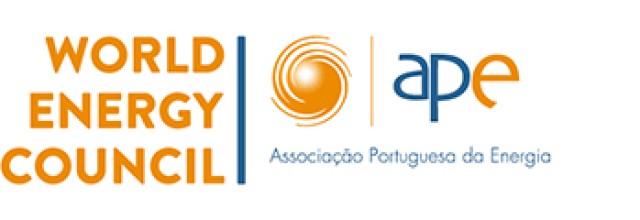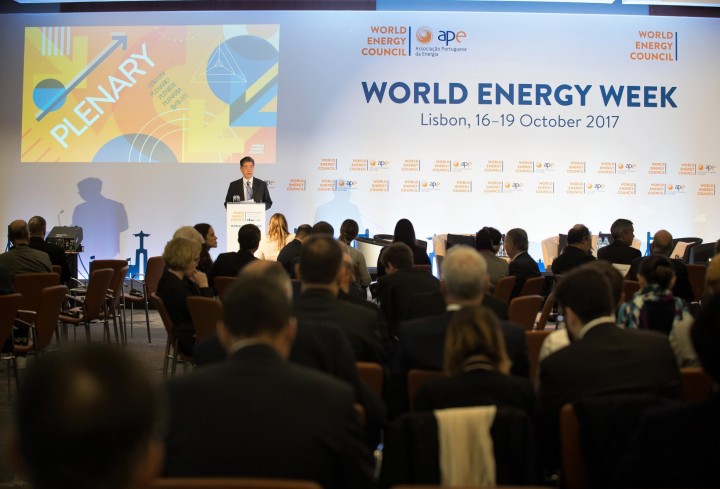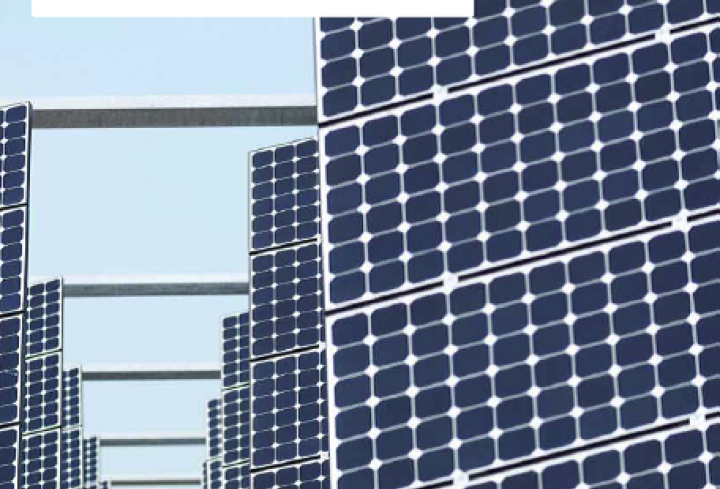Associação Portuguesa de Energia is a non-governmental, non-profit charity, aiming to promote sustainable energy, through reflection, debate and targeted initiatives, which will improve the energy sector’s contribution to the Portuguese economy and quality of life. The Association is the national member committee of the World Energy Council, and has among its constituent members the main energy operators, industries and services companies.
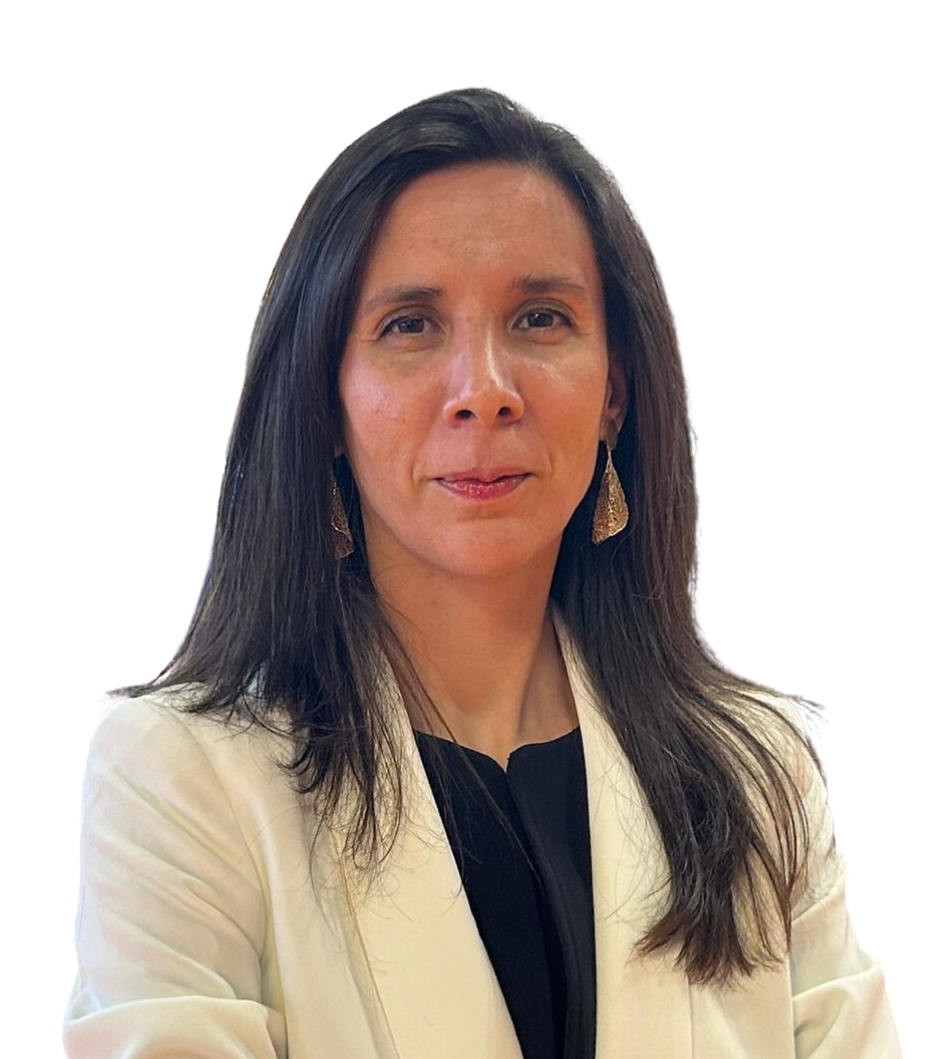
Ana Luís de Sousa is an individual member and actively collaborates with the Member Committee, particularly since 2020, when she was one of the founders of the Future Energy Leaders Portugal program, of which she was Secretary-General, and is also a founder of the Mulheres na Energia program.
Ana Luís de Sousa has a PhD from the University of Lisbon, where she holds a teaching position as an Invited Assistant Professor. She is a graduate with a master’s degree in civil engineering and has two other MSc in Petroleum engineering and Mechanical engineering. She is a senior member of the Ordem dos Engenheiros, with recognition as a specialist in hydraulics and water resources and energy. She has business and academic research experience and was also an advisor to the Secretary of State for Energy and Climate.
Energy in Portugal
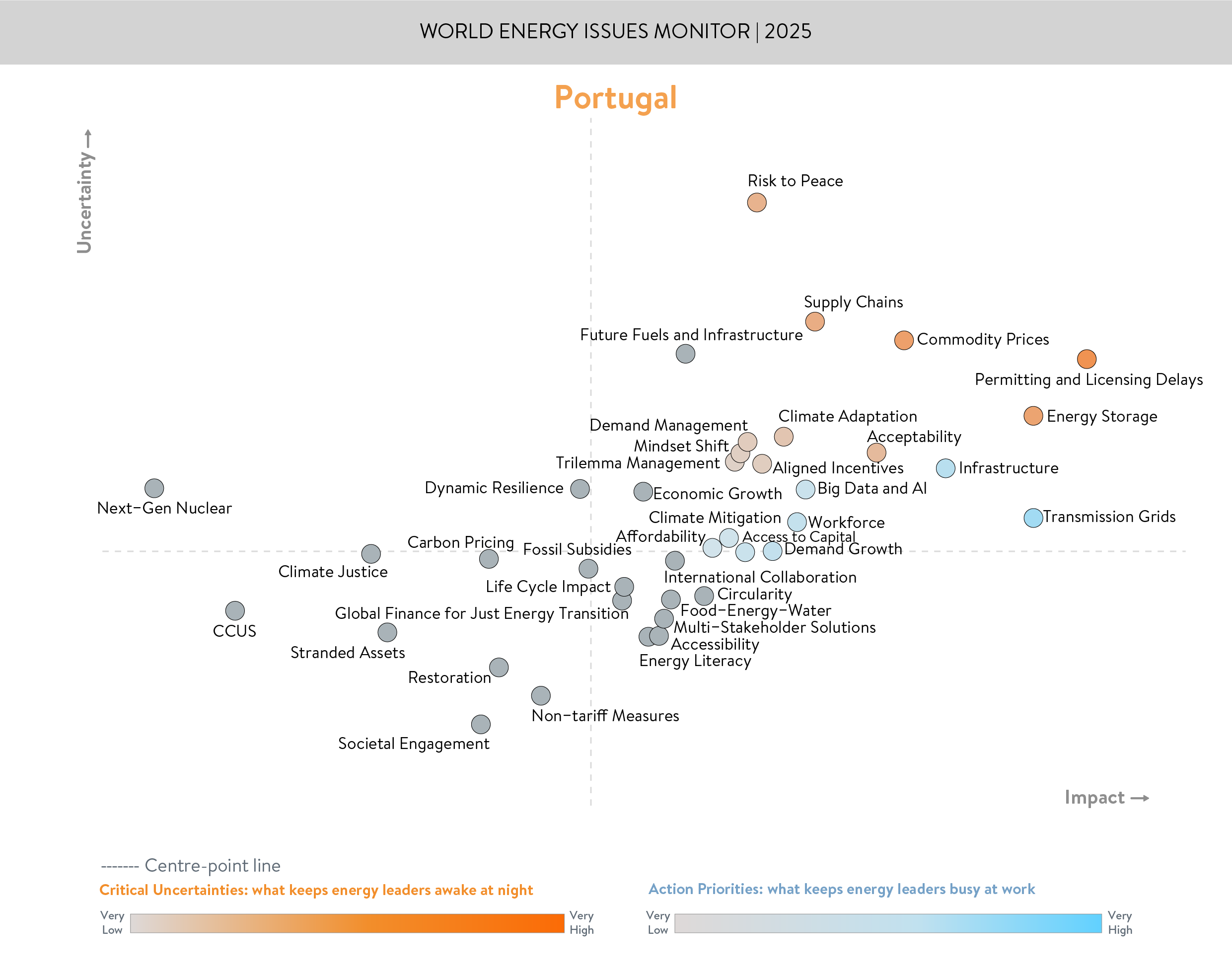
ENERGY ISSUES IN MOTION
In the 2025 World Energy Issues Monitor, “Permitting and Licensing Delays” emerged as the top critical uncertainty for Portugal, signalling rising concerns over the country’s capacity to deliver on its clean energy goals. As Portugal pushes towards 80% renewable electricity by 2025 and carbon neutrality by 2045, streamlining approval processes has become a key operational challenge. According to REN (National Energy Grid), renewables supplied 71% of national electricity consumption in 2024, highlighting an impressive momentum. However, the rise of permitting to the top-right quadrant of the map depicts growing concerns among stakeholders about the practical pace of the energy transition.
At the same time, “Transmission Grids” remains the top action priority, reflecting Portugal’s continued urgency to modernize and expand its grid infrastructure to accommodate rising volumes of variable renewable energy. This issue carries very high impact but low uncertainty, indicating strong consensus on its importance and broad alignment on the steps needed to address it.
Between 2024 and 2025, the Issues Monitor reveals a noticeable evolution in Portugal's energy landscape. While “Supply Chains” and “Risk to Peace” remain critical uncertainties, largely due to continued geopolitical volatility and dependencies on imported raw materials, new issues such as “Commodity Prices” and “Future Fuels and Infrastructure” have gained ground. These reflect broader concerns about market unpredictability, inflation, and the readiness of next-generation technologies like green hydrogen.
Conversely, “Acceptability”, which was a top critical uncertainty in 2024, has declined in both impact and perceived unpredictability, suggesting that public support for renewables and the energy transition has stabilized.
On the action priority front, both “Transmission Grids” and “Energy Storage” have maintained their prominence from 2024, underlining the foundational need for infrastructure and flexibility in enabling a renewable-powered grid. However, the 2025 map reveals a forward-looking pivot in action priorities, with the emergence of “Workforce”, “Big Data and AI”, and “Demand Growth” as key focus areas. These changes signal an evolving energy system that is not only expanding in capacity but also maturing in complexity.
FROM BLIND SPOTS TO BRIGHT SPOTS
Several blind spots appear in the lower-left quadrant of Portugal’s map, indicating low perceived impact and uncertainty. For instance, “Carbon Pricing” is currently seen as low priority, despite its crucial role in fostering fair, market-driven energy transitions. Similarly, “Life Cycle Impact” and “Stranded Assets” remain peripheral, even though today’s infrastructure choices will have lasting implications for sustainability and economic resilience. To address these blind spots, Portugal can redirect financial incentives towards clean energy technologies and energy efficiency improvements; enhance transparency by systematically reporting fossil-related expenditures and carbon pricing outcomes in national budgets and energy plans; reinvest carbon pricing revenues into green infrastructure, public transport systems, and reskilling programs, particularly for workers in carbon-intensive industries, and leverage digital platforms to monitor emissions, subsidy flows, and energy transition progress in real time.
Portugal’s map also highlights several bright spots, including Infrastructure and Big Data and AI, which are positioned as high-impact action priorities, reflecting the county’s ongoing investments in digitalization and smarter energy systems. While Energy Literacy and Accessibility are lower in uncertainty, their continued visibility underscores the efforts to engage the public and ensure inclusive access to clean energy. Additionally, Portugal’s emphasis on International Collaboration and Circularity aligns with EU-wide goals and demonstrates a growing commitment to resource efficiency and system-level sustainability.
ADDRESSING CRITICAL UNCERTAINTIES TO BALANCE THE WORLD ENERGY TRILEMMA
To better understand how the critical uncertainties interact with the World Energy Trilemma dimensions, Energy Security, Energy Equity, and Environmental Sustainability, the table below explores selected issues from the map.
Acknowledgements
Portugal Member Committee
Downloads
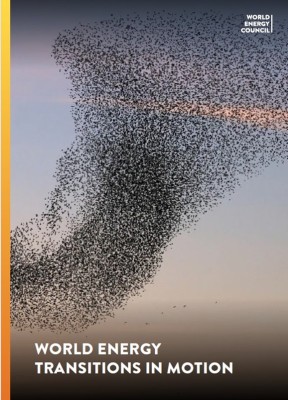
Portugal Energy Issues Monitor 2025 Country Commentary
Download PDF
World Energy Issues Monitor 2025
Download PDF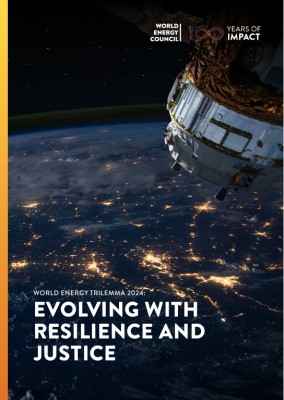
Portugal Energy Trilemma 2025 Country Profile 2024
Download PDF


